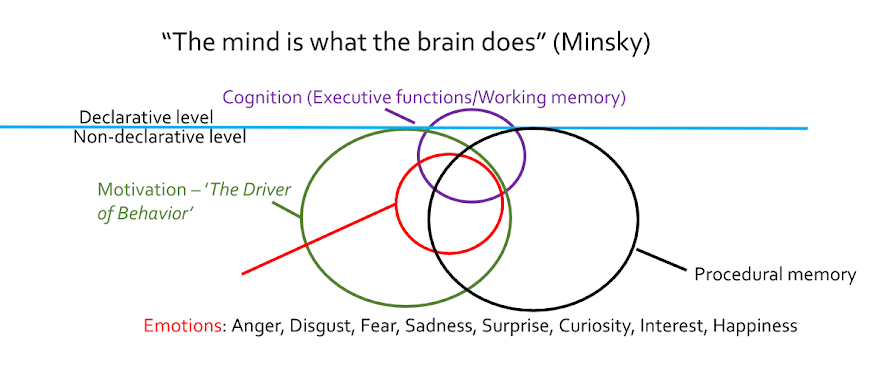Please support the blog via Swish (Sweden), MobilePay (Finland) or Wise.
Since last year I have re-launched my role as a performance and executive/business coach to serve individuals as well as leaders and organizations with my expertise on matters concerning general performance, as well as organizational work climate and three criteria: productivity, organizational learning, and social creativity for problem solving.
My previous clients in Sweden typically had no real issues, but seem to think that it was a good point to fine-tune their leadership behavior to sort of keep the motor running (general organizational performance).
Yesterday I had a meeting with a potential client. We had had a previous meeting during which we had really good verbal entrainment - rhytmic synchronization of behavior (Wynn and Borrie, 2022), and this meeting was no exception. That meant that we went through a lot, and during the conversion he asked me what I think about AI?
I was a bit surprised about the topic, and as we all know, surprise triggers a circular activity, release of dopamine, between the hippocampi (one in each hemisphere) and two instances in the reward system - Substantia nigra and the Ventral tegmental area. The result: it increases our willingness to explore to discover (Fenker and Schützte, 2008). In my case though, I know something about how the brain and the mind works, so instead, it evoked memory instances stored in my long term memory.
In the 1950s American military people, probably at Arpa now DARPA, launched two projects in parallel. On the one hand augmented Computing (AC) in the bay area around Stanford university, and on the other, Artificial Intelligence (AI) at Massachusetts Institute of Technology (MIT) (Markoff, 2005).
Most people use the result from augmented computing projects, because it ended up to be personal computers and smartphones, but the AI - project never really took off. Until a few years ago, a common answer to when AI will take off, was - 25 years forward in time.
Why did people say it will take 25 years?
AI is an attempt to simulate or imitate how the mind works, and in order to build a machine or write a software that can do that, one must first fully understand how the mind works.
What is the mind and how does it work?
Legendary cognitive scientist and AI - researcher Marvin Minsly (1927 - 2016) famously stated:
“the mind is what the brain does”.So the mind is like software within the brain which is a lump of fat. One view is that the mind's operations are manifested as an interplay between declarative (D) and non-declarative (N-D) memory faculties. The D - faculties correspond with activities in the prefrontal cortex, and N-D - faculties are manifested by activities in the rest of the brain.
In my doctoral thesis I elaborate on the idea that organizational performance can be optimized if the leaders assigned goal-oriented prospects and decentralize decision making about how to attain the goals to the level of operations. The model, Generative learning management (2004, 2012), is based on experimental research about goal-setting (Locke and Latham, 2002) and a simulation for semantic networking within something called connectionism - Parallel Distributed Processing (McClelland and Rumelhart, 1985).
Long story short, I said that I believe that any organization has its own artificial intelligence. The rationale for that claim is that most people today have an extraordinary high education, but most of it is not used.
Based on my research and more than fifteen years as a performance/business coach, I dear to claim that if a leader follows my advice, that is, develop a clear and challenging prospect for the organization, and decentralize decision making about how to attain that goal, it will most certainly enhance knowledge exchange between people within the organization on a non- declarative level providing a really good outcome. That means, no one will ever understand it took place other than from the outcome, that is, lower costs for research and development as well as better efficacy for managing the business - selling the products.
Also read: "Entrepreneurial thinking - how to simulate a desired future and create new innovative solutions"
Also visit: An introduction to Peter Österberg, Ph.D.
Please support the blog via Swish (Sweden), MobilePay (Finland) or Wise.
More about my expertise:
Executive coaching for CEOs/managers and workshops to facilitate Organizational Performance, Learning, and Creativity for Problem Solving | Lectures: Nutrition for physical and mental health | Course/lecture: children's emotional and social adjustment and cognitive development | Language training - Swedish | Academy Competency | CV | Teaching skills and experience | Summary of research project | Instagram | Linkedin | YouTube-channel | TikTok | Twitter

No comments:
Post a Comment